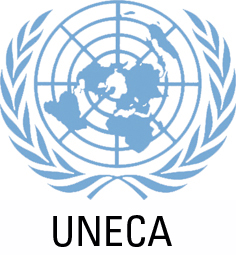Focal point
Location
P.O. Box 3001
Addis Ababa, Ethiopia
Established by the Economic and Social Council (ECOSOC) of the United Nations (UN) in 1958 as one of the UN's five regional commissions, ECA's mandate is to promote the economic and social development of its member States, foster intra-regional integration, and promote international cooperation for Africa's development.
Made up of 54 member States, and playing a dual role as a regional arm of the UN and as a key component of the African institutional landscape, ECA is well positioned to make unique contributions to address the Continent’s development challenges.
ECA’s thematic areas of focus are as follows:
- Macroeconomic Policy
- Regional Integration and Trade
- Social Development
- Natural Resources
- Innovation and Technology
- Gender
- Governance
Members:
Resources
Displaying 846 - 850 of 872Agricultural commodity stabilization in Niger
This paper was submitted in response to a note by the Executive Secretary inviting participating governments to contribute papers on the topics included in the provisional agenda. In Niger stabilization measures are applied to two agricultural commodities, cotton and groundnuts.
Agricultural commodity stabilization in Niger
This paper was submitted in response to a note by the Executive Secretary inviting participating governments to contribute papers on the topics included in the provisional agenda. In Niger stabilization measures are applied to two agricultural commodities, cotton and groundnuts.
La stabilisation des produits agricoles en Ouganda
La présents communication a pour objet d'exposer et d'apprécier dans
leurs grandes lignes les politiques et mesures appliquées en Ouganda pour stabiliser les produits agricoles.
La stabilisation des produits agricoles en Ouganda
La présents communication a pour objet d'exposer et d'apprécier dans
leurs grandes lignes les politiques et mesures appliquées en Ouganda pour stabiliser les produits agricoles.
Palm kernels and palm oil : recent world market trends in relation to stabilization problems and policies
Africa produces roughly four-fifths of world' oil palm products and contributes a similar proportion to world exports. The oil palm (Elaois guinoonsis) is thought to be native to West Africa, where it is mainly exploited by small producers. Estate planting is mostly confined to the Congo (Leopoldville), where plantations under European management wore first established around 50 years ago and at present produce about one-third of the Congolese palm oil.


